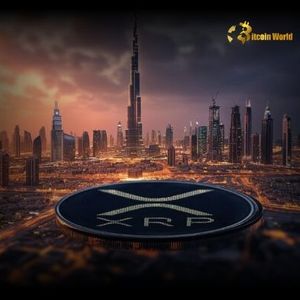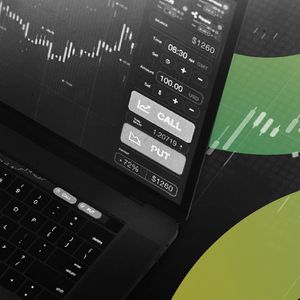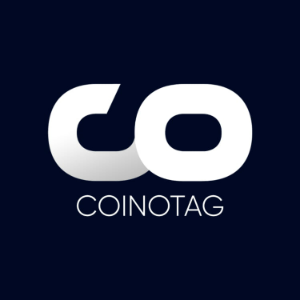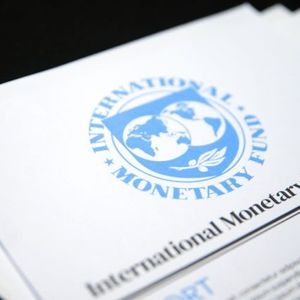Ripple: Unlocking Massive Dubai Real Estate Tokenization Opportunity
6 min read
BitcoinWorld Ripple: Unlocking Massive Dubai Real Estate Tokenization Opportunity Following its significant progress in the U.S. legal landscape, Ripple is making strategic and rapid moves internationally. A major focus has clearly shifted towards the Middle East, a region increasingly embracing blockchain technology and digital assets. Dubai, in particular, is emerging as a central hub for Ripple’s expansion, signaling a new era for the company’s global ambitions. Ripple’s Strategic Pivot: Why the Middle East? After navigating complex regulatory waters in the United States, Ripple has been actively strengthening its presence in markets with clearer regulatory frameworks or proactive approaches to digital asset innovation. The Middle East, with countries like the UAE and Saudi Arabia showing strong interest in blockchain and fintech, presents a fertile ground for growth. Dubai, known for its forward-thinking approach to technology and its ambition to become a global financial and technological hub, offers a particularly attractive environment. Regulatory bodies in the region have often demonstrated a willingness to engage with and even champion blockchain technology for various applications, from payments to asset management. Regulatory Clarity: Many Middle Eastern jurisdictions are establishing clearer rules for digital assets. Government Support: Several governments are actively promoting blockchain adoption in key sectors. Economic Diversification: The region is keen to diversify its economies, with technology and finance playing crucial roles. Growing Adoption: Increasing interest from both institutions and individuals in crypto and blockchain services. Dubai Real Estate Gets a Digital Upgrade with XRPL One of the most significant developments highlighted recently is the selection of the XRPL (XRP Ledger) for a government-backed real estate tokenization project in Dubai. This is a game-changer, aiming to transform how real estate assets are owned and traded in the city. The project has an ambitious target: tokenizing a staggering $16.3 billion worth of assets by 2033. What exactly does Dubai Real Estate tokenization mean? It involves representing ownership stakes in properties as digital tokens on a blockchain. These tokens can then be bought, sold, or traded much like other digital assets. This process can potentially unlock significant value by: Increasing Liquidity: Making it easier and faster to buy and sell fractional ownership in properties. Enabling Fractional Ownership: Allowing smaller investors to own a portion of high-value properties. Improving Transparency: Providing a clear, immutable record of ownership and transaction history on the ledger. Reducing Costs and Time: Streamlining traditional real estate transactions that can be lengthy and expensive. The fact that the XRPL was chosen for a government-backed initiative underscores the ledger’s capabilities and Ripple’s growing credibility in facilitating large-scale, regulated digital asset projects. Why the XRPL for Such a Massive Project? The choice of the XRPL for tokenizing billions in Dubai real estate assets is not arbitrary. The XRP Ledger is designed with specific features that make it well-suited for such large-scale, high-frequency applications: Speed and Efficiency: Transactions on the XRPL are confirmed very quickly (typically 3-5 seconds) and at a low cost, which is essential for frequent trading of tokenized assets. Scalability: The ledger can handle a high volume of transactions, crucial for a project aiming to tokenize billions in assets and potentially facilitate numerous trades. Built-in Features: The XRPL has native features like a decentralized exchange (DEX) and issuing capabilities, making it relatively straightforward to create and manage tokenized assets. Reliability: The ledger has a strong track record of uptime and stability. Developing Smart Contract Capabilities (Hooks): While historically known primarily for payments, the XRPL is evolving with features like Hooks, enabling more complex smart contract functionalities needed for sophisticated tokenization and DeFi applications. These technical advantages, combined with Ripple’s focus on enterprise solutions and regulatory compliance, likely played a key role in securing this significant Dubai Real Estate tokenization partnership. Ripple’s Broader Play: Driving Asset Tokenization and DeFi-TradFi Integration The Dubai real estate project is a major piece, but it fits into Ripple’s larger strategy to become a leader in Asset Tokenization and bridge the gap between traditional finance (TradFi) and decentralized finance (DeFi). Tokenizing real-world assets (RWAs) like real estate, stocks, commodities, and even art is seen as the next frontier for blockchain technology, potentially unlocking trillions in value globally. Ripple’s recent activities reinforce this ambition: Acquisition of Hidden Road: The reported $1.25 billion acquisition of institutional crypto prime broker Hidden Road is a clear move to enhance Ripple’s offerings for institutional clients. This positions Ripple to provide the necessary infrastructure and services for large players looking to engage with tokenized assets and digital markets. Expansion in Payments and Stablecoins: While the focus here is tokenization, Ripple continues to build out its core payments business and is actively involved in the stablecoin space. These activities are complementary, as stablecoins often serve as the settlement layer for trading tokenized assets. Private Funding Rounds: Securing $121 million in private funding through Nasdaq-listed VivoPower, which is adopting an XRP-based reserve model backed by Saudi investment, demonstrates continued investor confidence and strategic partnerships in the region. This funding can fuel further expansion and development in the tokenization space. By building robust institutional services and fostering regulatory relationships, Ripple aims to facilitate the seamless flow of tokenized assets and capital between traditional financial systems and the burgeoning world of DeFi on ledgers like the XRPL . The Middle East Crypto Landscape and Ripple’s Position The Middle East Crypto market is vibrant and growing, with significant interest from both governments and private sectors. Countries are exploring central bank digital currencies (CBDCs), enabling crypto trading, and using blockchain for various administrative and economic purposes. Ripple’s focus aligns perfectly with this regional momentum. Securing regulatory approval in Dubai is a critical step, providing a clear operational framework for Ripple and its partners in the Emirate. This approval facilitates easier engagement with local financial institutions and businesses looking to leverage blockchain for payments, stablecoins, and, critically, Asset Tokenization . Ripple’s multi-pronged approach in the region – securing funding, gaining regulatory nods, building partnerships, and powering key projects like the Dubai real estate initiative – positions it as a significant player in the rapidly evolving Middle East Crypto landscape. The success of the Dubai project could serve as a powerful case study, potentially encouraging similar initiatives across the region and globally. What Are the Potential Benefits and Challenges Ahead? The benefits of these developments are substantial: For Ripple: Opens up massive new markets and use cases for the XRPL and its associated technologies, strengthens its position as a leader in enterprise blockchain and tokenization, and potentially boosts the utility and adoption of XRP. For Dubai and the Middle East: Attracts foreign investment, modernizes financial infrastructure, increases market liquidity and accessibility, and reinforces the region’s status as a global innovation hub. For Investors/Users: Potentially provides new, more accessible ways to invest in assets like real estate and offers more efficient transaction methods. However, challenges remain: Regulatory Harmonization: While some countries are clear, navigating diverse regulations across the entire Middle East region can still be complex. Adoption Hurdles: Educating market participants and ensuring widespread technological adoption for tokenized assets takes time and effort. Market Acceptance: Gaining full acceptance from traditional financial players and the general public for tokenized real estate and other assets requires building trust and demonstrating tangible benefits. Technical Implementation: Large-scale tokenization projects require robust technical infrastructure and seamless integration with existing systems. Despite these challenges, the momentum in the Middle East Crypto space and the strategic nature of Ripple’s moves suggest a strong potential for success. Conclusion: A New Horizon for Ripple and Tokenization Ripple’s accelerated strategy in the Middle East, highlighted by the pivotal role of the XRPL in Dubai’s ambitious Dubai Real Estate tokenization project, marks a significant milestone. Targeting $16.3 billion in assets is a bold statement about the potential scale of Asset Tokenization on the ledger. Combined with strategic acquisitions, regulatory approvals, and key partnerships, Ripple is positioning itself not just as a payments company, but as a central player in the future of digital assets and the integration of DeFi with traditional finance in one of the world’s most dynamic regions. The developments in the Middle East Crypto market are set to be a key narrative for Ripple’s growth in the coming years. To learn more about the latest Middle East Crypto trends, explore our article on key developments shaping Asset Tokenization institutional adoption . This post Ripple: Unlocking Massive Dubai Real Estate Tokenization Opportunity first appeared on BitcoinWorld and is written by Editorial Team

Source: Bitcoin World



